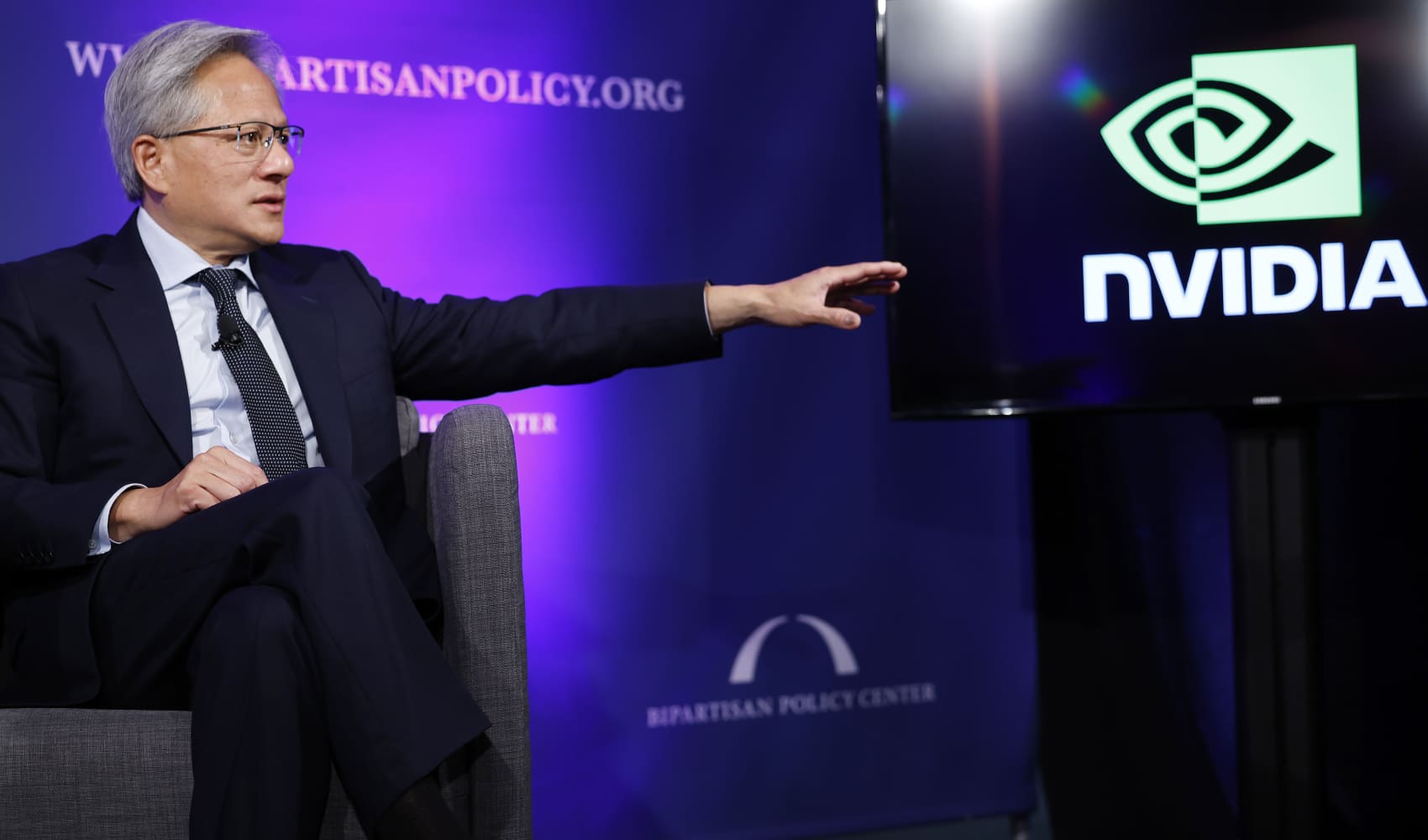
- TikTok on Tuesday sued the U.S. government over a law that would force Chinese parent ByteDance to sell the app or face a national ban.
- President Biden signed legislation in April that gives ByteDance nine months to find a buyer for the popular short-form video app, and a three month extension if a deal is in progress.
- The courts have to balance First Amendment rights versus national security concerns.
The future of TikTok is more uncertain than ever after the social media company sued the U.S. government on Tuesday over a law that would force Chinese parent ByteDance to sell the app or face a national ban.
President Joe Biden signed legislation in April that gives ByteDance nine months to find a buyer for the popular short-form video app, and a three month extension if a deal is in progress. The Protecting Americans From Foreign Adversary Controlled Applications Act, as it's known, passed with bipartisan support in both chambers of Congress.
TikTok argues that the bill violates the First Amendment, and that divestiture is "simply not possible: not commercially, not technologically, not legally," according to the company's legal filing.
"For the first time in history, Congress has enacted a law that subjects a single, named speech platform to a permanent, nationwide ban, and bars every American from participating in a unique online community with more than 1 billion people worldwide," the lawsuit said.
American lawmakers have long argued that TikTok's foreign ownership poses a national security risk. Former President Donald Trump attempted to ban the platform through an executive order in 2020, laying out the path to a potential ban. That effort failed, but the issue gained resonance as concerns intensified surrounding China's heightened power on the global state.
Prior to the passage of the law, TikTok spent more than $2 billion on an initiative called "Project Texas" to better protect U.S. user data from foreign influence. But lawmakers continued pressing to advance legislation anyway.
Money Report
Whether TikTok is successful in its lawsuit, filed in the U.S. Court of Appeals for the D.C. Circuit, largely hinges on how the courts treat the matter. Is it a First Amendment issue or a national security concern?
Feeling out of the loop? We'll catch you up on the Chicago news you need to know. Sign up for the weekly Chicago Catch-Up newsletter.
'One of those truly hard issues'
The D.C. Circuit Court could agree to hear the case on an expedited timeframe, meaning a completed opinion could be delivered before a sale is required, said Gus Hurwitz, senior fellow and academic director of the Center for Technology, Innovation & Competition at the University of Pennsylvania Carey Law School.
Hurwitz said TikTok and ByteDance will likely request a stay of the law or a preliminary injunction with the court, effectively putting the law on hold until a decision is reached.
"If the court does not put such a stay in place, I think that's a really bad sign for TikTok and ByteDance," Hurwitz told CNBC in an interview. "That's a suggestion that the court thinks the law has a very strong chance of being upheld."
TikTok could also file another lawsuit on behalf of its users, which Hurwitz said would strengthen the company's First Amendment argument and, if the courts view it under that lens, make it harder for Congress to prevail.
"This is one of those truly hard issues on both sides sort of cases," Hurwitz said.
Gautam Hans, an associate clinical professor of law at Cornell Law School, said courts take issues of speech suppression very seriously, but are also protective of national security. He said the two priorities infrequently come into conflict.
"These situations are relatively rare," Hans said in an interview. "This law is, to my understanding, is pretty unprecedented."
It's also different from past attempts to ban TikTok since the bill has bipartisan support, which can influence the courts, Hans said. Regardless of what happens in the circuit court, Hans said there's a real possibility the case ends up getting elevated to the U.S. Supreme Court.
"I don't think that this case is going to be easily resolved," Hans said.
Weighing a sale
ByteDance could simplify the process and agree to divest TikTok so that it's majority owner is outside of China. But the company has reportedly said it would rather close TikTok in the U.S. than sell it. TikTok CEO Shou Chew said in a video on the app, "Make no mistake: This is a ban."
Further complicating a potential sale is the issue of TikTok's algorithm, which is they key piece of technology that allows the app to make recommendations to users. China would likely have to approve the transfer of the algorithm, a move that experts don't see happening.
"It's kind of like you're selling the house, but you take out all the windows and doors and who's gonna buy it?" Hans said.
Still, there are some interested acquirers.
Former Treasury Secretary Steven Mnuchin told CNBC's David Faber on Tuesday he is still "very interested" in buying or investing in TikTok. He said that, even without the algorithm, the platform could probably be rebuilt within a year. But he said it would be a much more difficult deal if TikTok were to spend six months of that period litigating.
"The best outcome would be if they'd agree to do a deal now and you'd have a year to rebuild the technology, which I think would be a major effort but could be done," Mnuchin said.
As of now, TikTok can continue to operate. Hurwitz said the company is showing little inclination to sell or or stop doing business in the U.S. until the last possible minute.
"This is going to be a while," he said.






